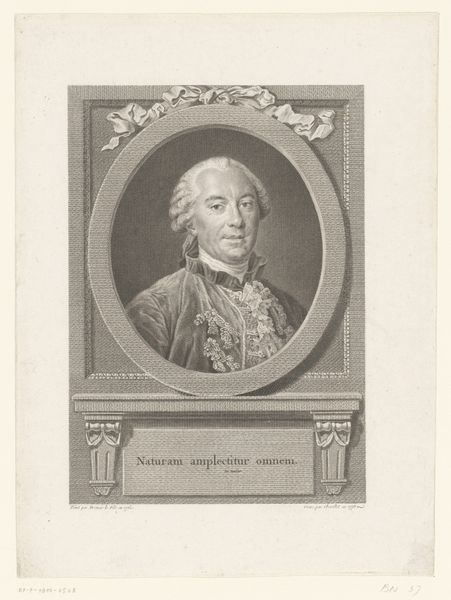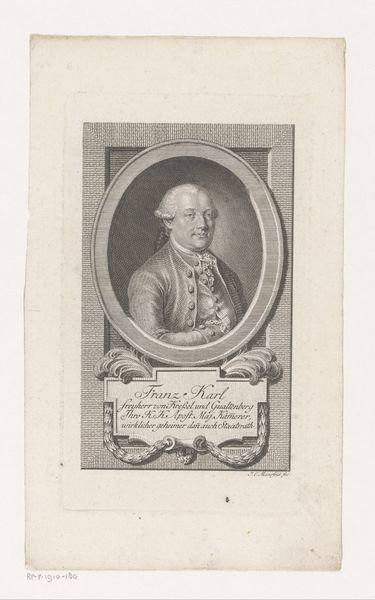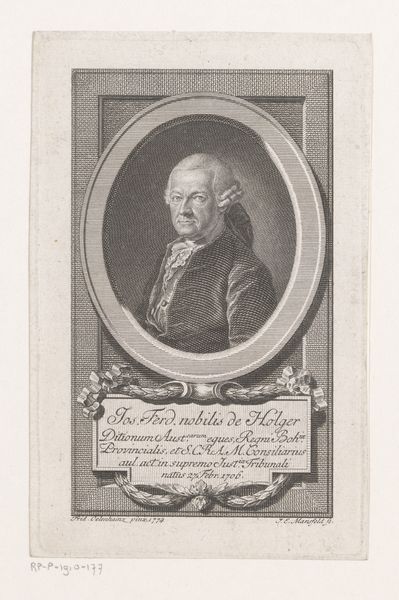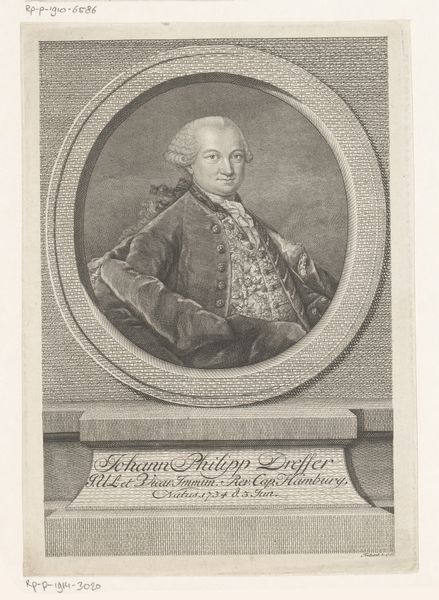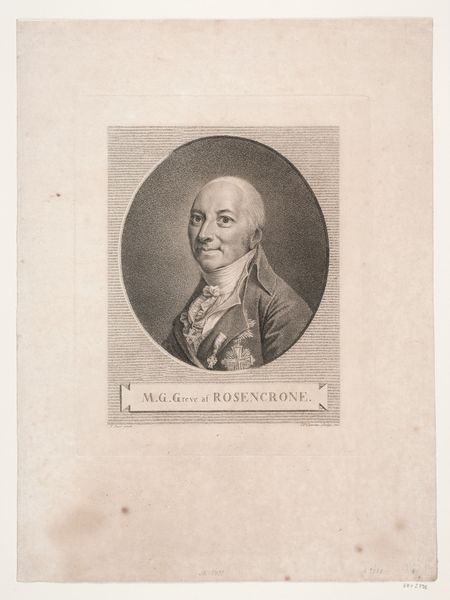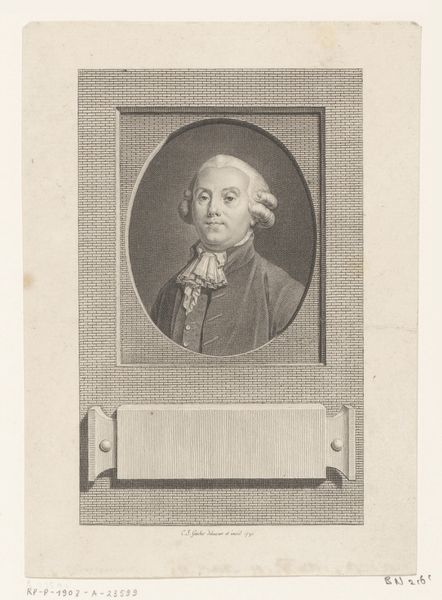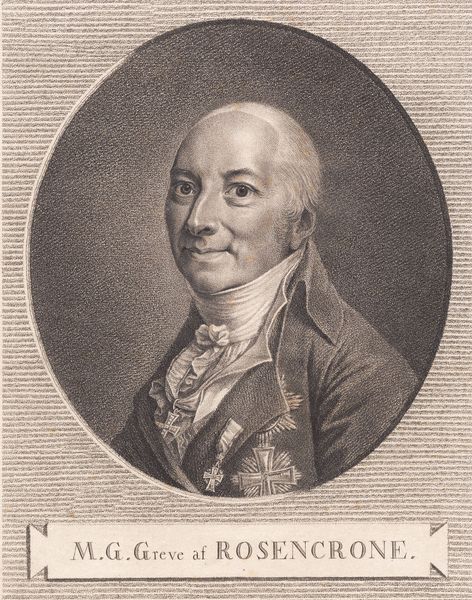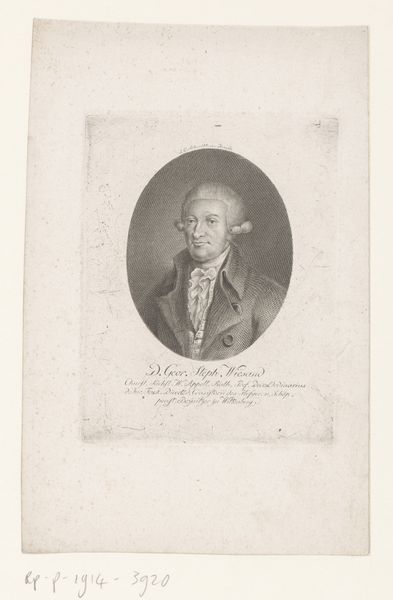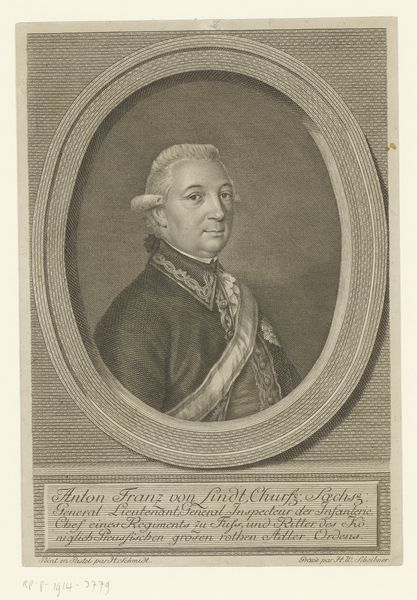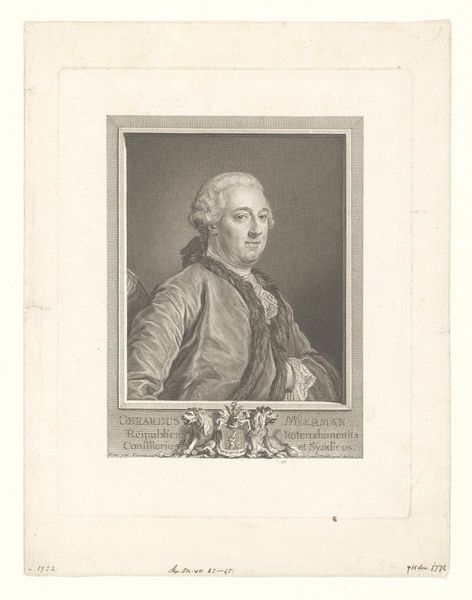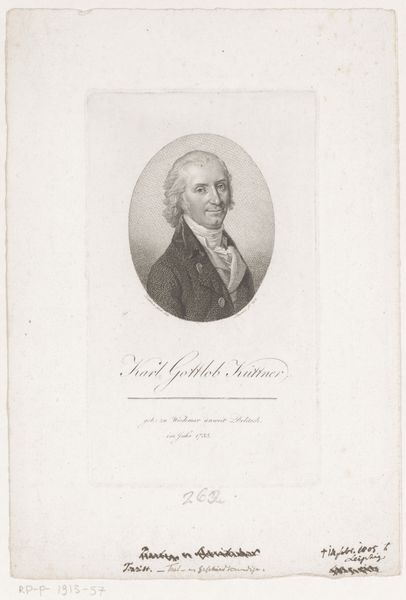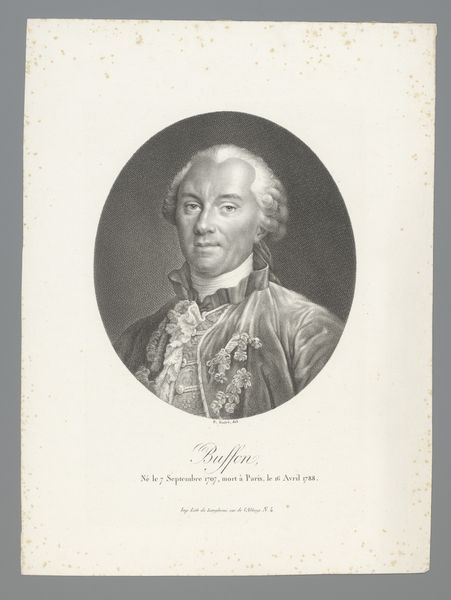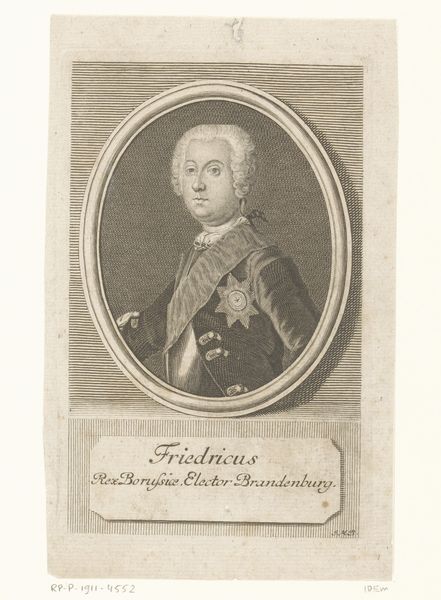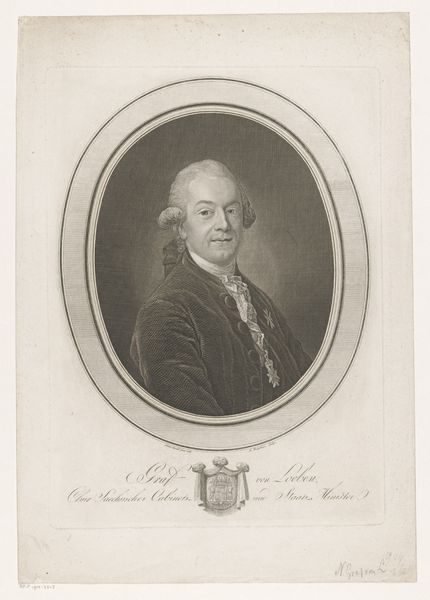
print, engraving
#
portrait
# print
#
old engraving style
#
19th century
#
history-painting
#
engraving
#
realism
Dimensions: height 119 mm, width 71 mm
Copyright: Rijks Museum: Open Domain
Wilhelm Arndt created this portrait of Friedrich Wilhelm von der Schulenburg using a printmaking technique called engraving. Engraving is an intaglio process where the artist meticulously cuts lines into a metal plate, typically copper, using a tool called a burin. The incised lines hold ink, and when the plate is pressed against paper, the image is transferred. The fineness of the lines, the precision of their placement, and the control of pressure all contribute to the final image. Look closely, and you can see the subtle gradations of tone achieved through the density and direction of the engraved lines. Engraving was crucial to disseminating images and knowledge in the 18th century, a precursor to mass production and visual culture as we know it. It demanded skilled labor, patience, and an understanding of graphic reproduction. So, when we consider this portrait, we're not just seeing an image of an individual, but also a testament to the labor-intensive processes of its making, at the dawn of the industrial age.
Comments
No comments
Be the first to comment and join the conversation on the ultimate creative platform.
